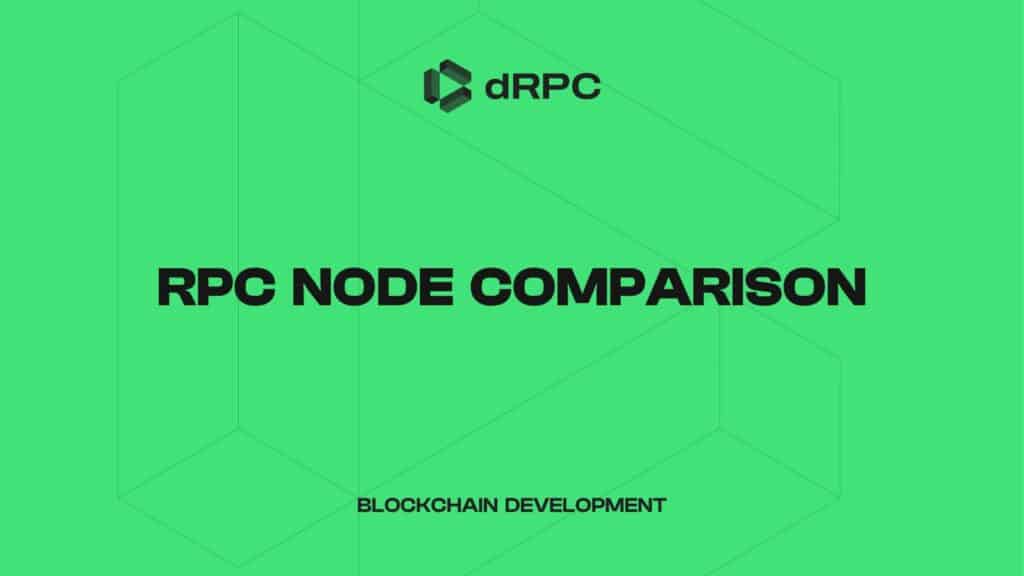While Web3 space is growing, developers are increasingly looking for reliable and efficient infrastructure providers. This article compares three popular blockchain infrastructure providers: dRPC vs Alchemy vs Infura. By evaluating their features and services, we aim to help developers choose the best platform for their specific needs.
*Plus add-ons
Detailed Analysis for dRPC vs Alchemy vs Infura
1. API Access and Limits
- dRPC offers unlimited APIs and API keys, with no rate limits, providing developers with flexible and unrestricted access. This makes it an ideal choice for projects requiring high scalability and uninterrupted service.
- Infura also provides unlimited APIs but lacks unlimited API keys and imposes rate limits. This might pose challenges for projects with extensive API usage.
- Alchemy offers similar unlimited API access but like Infura, does not provide unlimited API keys and has rate limits.
2. Decentralization and Node Availability
- dRPC stands out with its decentralized nodes, ensuring higher security and resilience against single points of failure. This is crucial for projects prioritizing decentralization.
- Infura and Alchemy do not offer decentralized nodes, which might be a concern for developers focused on maintaining a decentralized architecture.
3. Support and Reliability
- dRPC and Alchemy both provide 24/7 support, with dRPC offering round-the-clock assistance via Discord. This ensures immediate help in case of issues.
- Infura lacks 24/7 support, which could be a drawback for developers needing constant availability.
4. Analytics and Notifications
- All three providers offer analytics dashboards, helping developers monitor and optimize their application performance.
- dRPC and Alchemy also provide important notifications, ensuring developers are alerted to any critical events. Infura, however, does not offer this feature.
5. Pricing Model
- dRPC adopts a “pay what you use” pricing model, making it cost-effective for developers. It charges $34 for 5M requests, significantly lower than its competitors.
- Infura and Alchemy use package pricing models, with Infura charging around $50* and Alchemy around $289* for 5M requests. The additional costs can add up, making them more expensive options.
- Compare pricing between RPC providers
6. Advanced Features
- dRPC includes an AI-driven load balancer, enhancing performance and reliability by efficiently managing traffic. This feature is not available in Infura and Alchemy.
- dRPC supports a higher number of chains (50) compared to Infura (11) and Alchemy (13), offering greater flexibility for multi-chain projects.
- Additionally, dRPC provides front-running protection (MEV) for two chains (ETH, BSC), a feature not offered by Infura or Alchemy.
7. Payment Methods
- dRPC allows payments in cryptocurrency, which can be beneficial for developers looking for more flexible and modern payment options.
- Infura and Alchemy accept fiat payments, catering to developers who prefer traditional payment methods.
Conclusion of dRPC vs Alchemy vs Infura
Based on the comparison, dRPC emerges as a highly competitive choice for blockchain developers, offering extensive features, decentralized nodes, and a cost-effective pricing model. While Infura and Alchemy also provide valuable services, their limitations in decentralization, rate limits, and higher costs may make dRPC a more attractive option for many projects.
Developers should evaluate their specific needs and project requirements to choose the best infrastructure provider. The detailed comparison above serves as a guide to making an informed decision.


